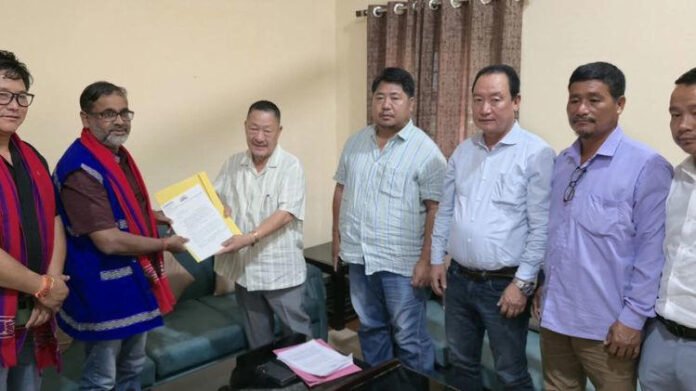An Arunachal Pradesh MLA raised serious concerns over the Dollungmukh border dispute, which threatens peace and stability in the region. The lawmaker has urged immediate intervention to stop illegal bombing and encroachment activities along the Assam-Arunachal border, especially near Dollungmukh.
Local communities have expressed outrage, fearing the situation may escalate further without prompt action.
Read More: Tripura CM Urges Highway Repair After Rain Damage
MLA Presses Government Over Bombing Incidents
Recent reports of illegal bombings near the Arunachal-Assam boundary have reignited the Dollungmukh border dispute. Unidentified groups allegedly carried out these bombings, causing panic among residents. Responding swiftly, the local MLA brought the issue to the state assembly’s attention.
“These acts are not only unlawful but dangerous to our people,” said the MLA. “Fear has gripped entire villages. The state must step in, investigate thoroughly, and ensure security for all.”
Residents of Dollungmukh, already anxious over recurring tensions, now demand clear answers and stronger protection. Local officials acknowledged receiving alerts about the blasts and confirmed that an investigation team would be dispatched.
Border Encroachment Escalates Dispute
The MLA also highlighted alarming cases of land encroachment by groups operating from the Assam side. According to his statement, several areas traditionally under Arunachal’s jurisdiction have been taken over or marked by outside groups without consent.
The Dollungmukh border dispute has persisted for decades, but locals say the situation has worsened recently. Despite ongoing talks between Assam and Arunachal, real progress on border demarcation remains elusive.
“Securing the border is not optional. The people living here deserve clarity and respect for their land rights,” the MLA asserted.
Demands for Inquiry and Increased Security
The MLA submitted a formal letter to the Chief Minister demanding a joint investigation by both states and the deployment of additional police forces in Dollungmukh. He stressed the need to respond with urgency and decisiveness.
“A strong message must be sent that Arunachal will not tolerate these violations,” he said during a press briefing.
Several local organizations, including the All Dollungmukh Youth Association (ADYA), have also joined the MLA’s call. They warned that inaction would only embolden those involved in border violations and risk triggering community-level unrest.
Villagers Caught in the Crossfire
Meanwhile, residents of Dollungmukh say they live in constant fear. Many have stopped working in nearby fields, while some parents are reluctant to send their children to school.
“We’re tired of uncertainty,” shared a local farmer. “Our lives shouldn’t be defined by fear and political indecision. All we ask is peace, safety, and support from our leaders.”
The Dollungmukh border dispute has become more than a political issue—it’s now a humanitarian concern. Without firm steps, the tension threatens to spiral further, hurting innocent civilians the most.
Long-Standing Disputes Demand Long-Term Solutions
The Dollungmukh conflict reflects a broader challenge faced by India’s northeastern states. Border disputes between Assam and its neighbors—Arunachal, Nagaland, and Mizoram—continue to flare up despite repeated peace efforts.
While central government mediation has led to partial agreements, unresolved issues like Dollungmukh remain dangerous flashpoints. Lasting solutions will require not only dialogue but also the political will to act swiftly on the ground.
As the situation unfolds, residents are hoping their elected leaders will uphold their promises. For now, the people of Dollungmukh wait—watching, hoping, and praying for resolution in the growing shadow of the Dollungmukh border dispute.


